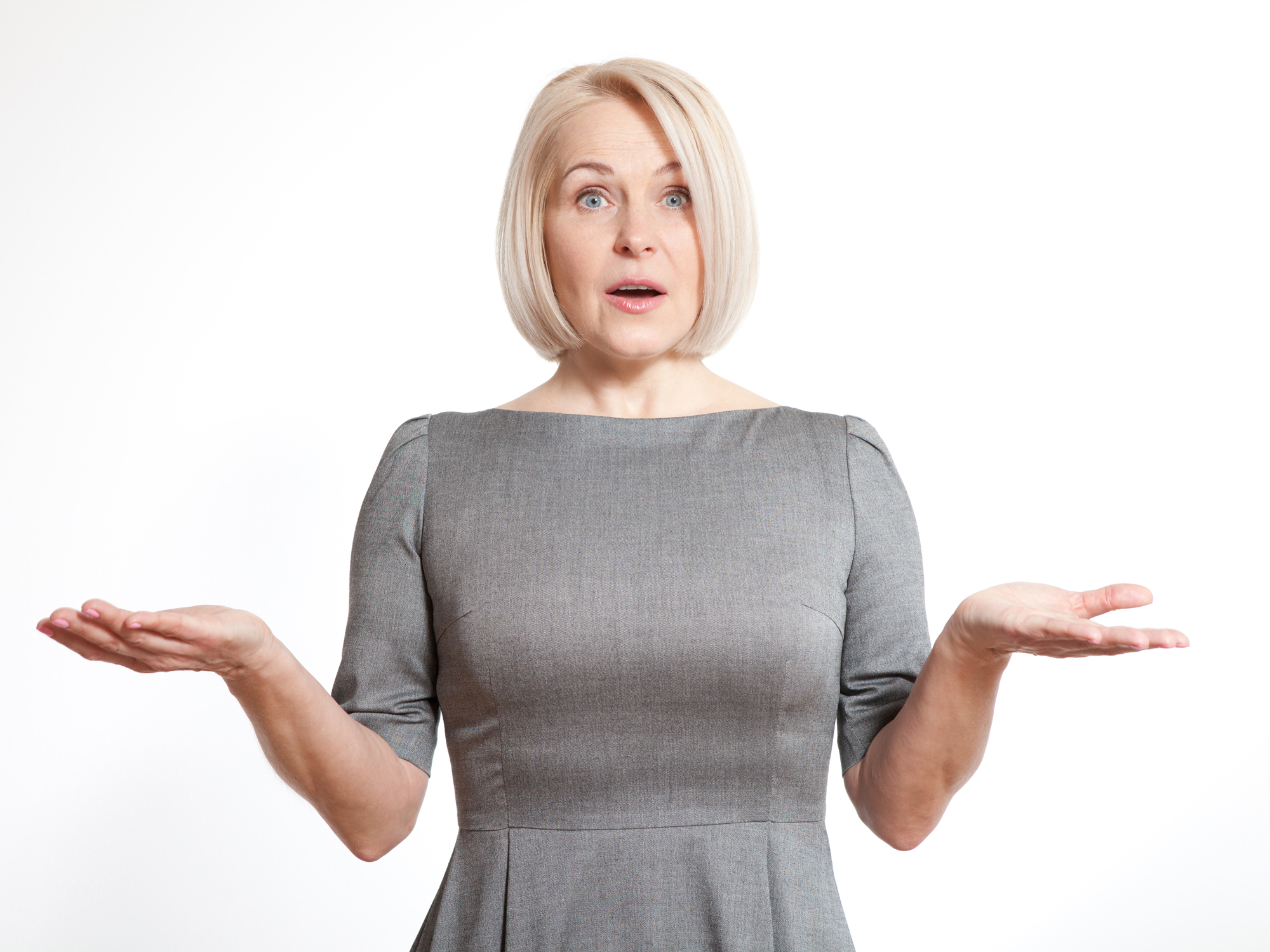Get Easy Health Digest™ in your inbox and don’t miss a thing when you subscribe today. Plus, get the free bonus report, Mother Nature’s Tips, Tricks and Remedies for Cholesterol, Blood Pressure & Blood Sugar as my way of saying welcome to the community!
Bye bye period, hello heart disease and Alzheimer’s?

While menopause means not having to deal with a period anymore (something most women look forward to), it can also mean weight gain, hot flashes, anxiety, moodiness, and even a reduced sex drive.
This is because, during menopause, your body slowly starts producing less and less of the hormone estrogen.
And, these inevitable hormonal changes can significantly impact your health for years to come.
Decreasing estrogen levels affect your:
- Brain — Estrogen depletion leads to changes in your brain and nervous system. You may experience mood swings, memory loss, problems focusing, irritability, fatigue, anxiety and depression. Some research indicates that estrogen depletion can affect your memory and may impact one’s risk for the development of Alzheimer’s disease: Nearly two-thirds of the 5.5 million Americans living with Alzheimer’s are women! Read more about the estrogen/Alzheimer’s connection.
- Heart — Due to estrogen depletion, women have an increased risk for cardiovascular issues, such as heart attacks, strokes or other heart-related problems.
- Bones — The estrogen depletion that comes with menopause results in an increased risk for low bone mineral density, osteopenia and osteoporosis. In fact, for 5-10 years after menopause, this bone density loss accelerates into a gradual weakening of your bones and can lead to a higher risk for fractures and other injuries.
- Skin — The body’s largest and most visible organ, your skin, undergoes changes during menopause. The reduction of estrogen at menopause decreases the water-holding ability and elasticity in the skin, leading to dryness, itching and an increase in wrinkling and sagging.
- Urinary System — Estrogen depletion can cause the lining of your urethra to become drier, thinner and less elastic. This can lead to feeling the need to urinate more often, an increased risk of urinary tract infections (UTIs) and involuntary leaking of urine (incontinence) when coughing, laughing or lifting heavy objects.
- Vagina — Low estrogen levels can lead to vaginal dryness, irritation or discomfort.
- Muscles — Estrogen acts as a regulator of muscle energy metabolism and muscle cell viability. Menopause leads to lower estrogen production and deterioration of muscle function.
So, with the lower estrogen levels of menopause resulting in so many problems, it’s clear that estrogen elevation could help you feel better and make navigating the waters of menopause easier.
Estrogen-boosting foods
There are a number of estrogen-rich foods that are widely available to help if you’re experiencing low estrogen levels. These foods are rich in phytoestrogens – plant-based estrogens – that can help balance your hormones naturally.
- Soy is a rich source of phytoestrogen and comes in a variety of easy-to-consume forms like soy milk, tofu, edamame and fermented soy foods, like miso. If you’re still confused about whether you should eat soy or not, the latest research says it’s ok to say yes to certain soy foods. Even the Susan G. Komen organization states that soy can be part of an overall healthy diet that focuses on more plant-based foods and less red meat.
- Flaxseeds contain up to three times the phytoestrogens of soybeans, but your body will not reap their benefits unless they are cracked or ground prior to consumption.
- Sesame seeds, or even sesame oil, contain lignans (a chemical compound found in plants) that possess phytoestrogens.
- Beans, like lentils, pinto beans and lima beans contain good amounts of phytoestrogens to help boost your estrogen levels.
- Several types of nuts, including pistachios, chestnuts, hazelnuts, and walnuts, are excellent sources of phytoestrogens.
- Chickpeas, also known as garbanzo beans, are classified as legumes, which is a food group known for their phytoestrogen content.
- Wheat bran, whether it’s in muffins, bread or cereals, is a good choice for a daily dose of phytoestrogens.
- Fruit, like apricots, oranges, strawberries, peaches and many dried fruits are estrogen-boosting options. Dried fruits tend to be higher in sugar, so opt for the whole, fresh fruit most of the time.
Menopause may be inevitable but the symptoms that come with it aren’t. Phytoestrogens from the foods above can be part of a well-balanced diet to help master menopause naturally and hold on to your health.
Editor’s note: There are perfectly safe and natural ways to decrease your risk of blood clots including the 25-cent vitamin, the nutrient that acts as a natural blood thinner and the powerful herb that helps clear plaque. To discover these and other secrets of long-lived hearts, click here for Hushed Up Natural Heart Cures and Common Misconceptions of Popular Heart Treatments!
Sources:
- How Do I Know if I’m in Menopause? — WebMD
- HOW HORMONE DEPLETION AFFECTS YOU — Northwestern University
- Menopause and estrogen affect muscle function — University of Jyväskylä














